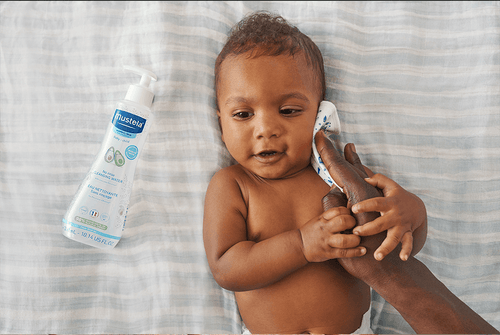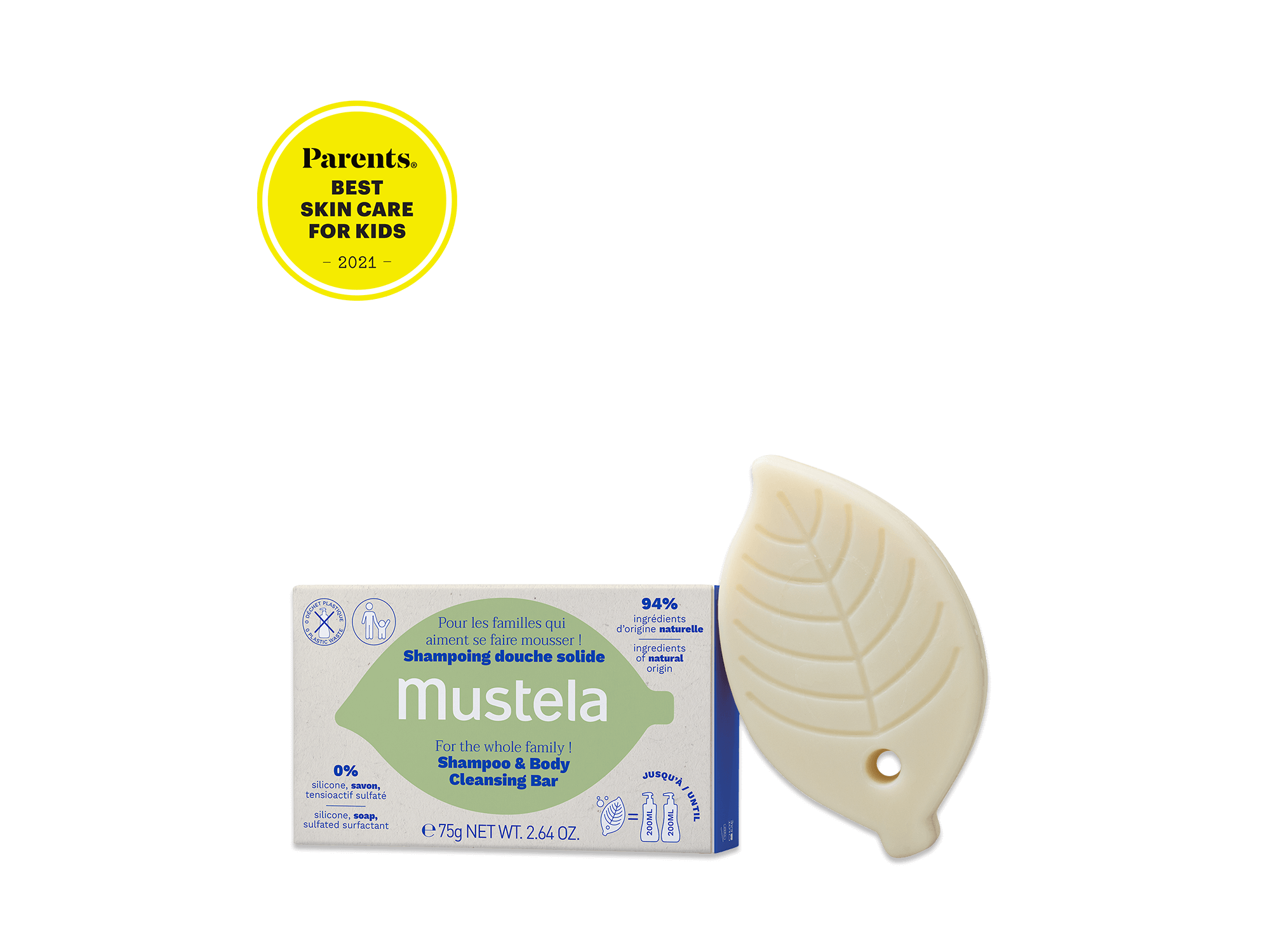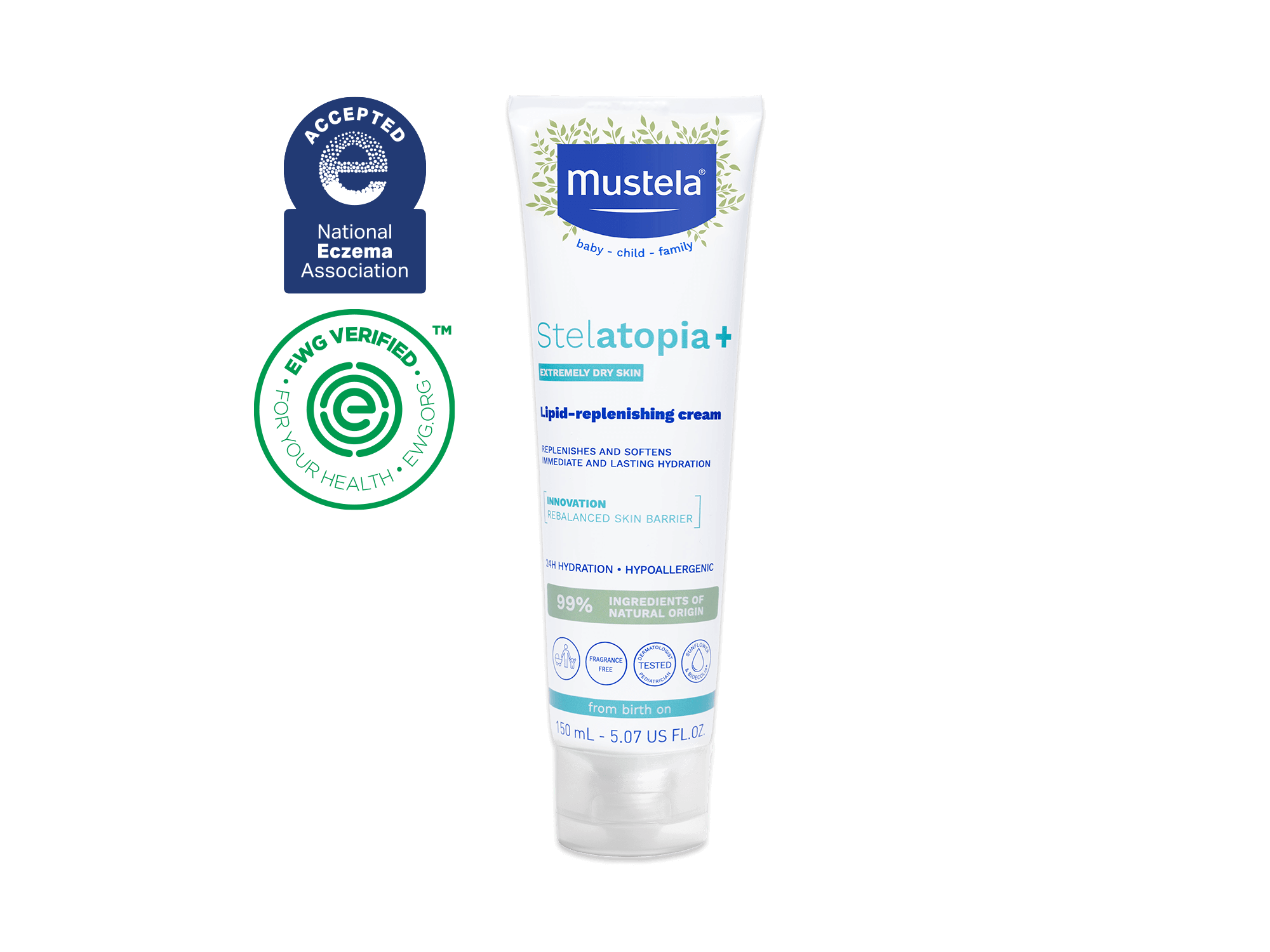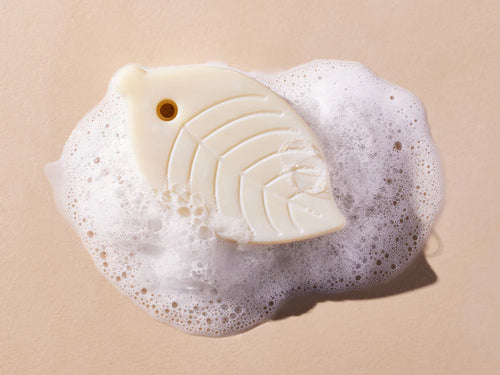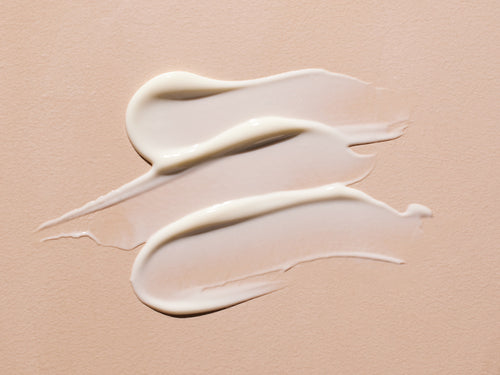You pick your baby up from a nap and realize they're drenched in sweat. Though the sight might concern you, newborn sweating is quite common and rarely something to worry about.
To help give you peace of mind, here's an overview of newborn sweating, including what causes it and how to keep your baby comfortable. You’ll also learn what red flags to watch for that could indicate a more severe problem.
Table Of Contents
- Is It Normal For Newborns To Sweat?
- 7 Common Causes Of Newborn Sweating
- How To Handle Newborn Sweating
- Red Flags To Watch For
Is It Normal For Newborns To Sweat?

It's totally normal for newborns to sweat. Babies can't regulate their body temperature as well as adults, so it's common for them to sweat more frequently.
In addition, they can’t yet talk to let you know they’re starting to feel warm. So sweating is a non-verbal sign that indicates they’re overheating.
When your baby is sweaty, you may notice their cheeks get flushed. They may also feel warm and damp since sweat can drench their clothes. These are all typical signs and, usually, nothing to worry about.
7 Common Causes Of Newborn Sweating
Now that you know it’s normal for babies to sweat, let’s look at why newborns may do so.
1) Adjusting To The Outside World
As we mentioned above, babies aren't as adept at regulating their body temperature as adults. It can take newborns several weeks — or even months — to adjust to the outside world and find balance in temperature control.
During this time, you may notice they go from warm to cold or vice versa multiple times in one day. It's essential to keep tabs on your little one's temperature, as newborns are at risk of overheating or becoming too cold quickly.
That's why layers are so crucial when it comes to newborn clothing. With layers, you can adjust as needed to keep your baby as comfortable as possible, no matter the situation.
2) Feeding

Snuggling your newborn close while they feed can make for a cozy moment. But holding them too close may cause your baby to heat up.
You might notice newborns sweating after feeding, whether breastfed or bottle-fed. If this happens, it's a good idea to pause the feeding session, burp your baby, and help them cool down before continuing with the meal.
When you resume, make sure your baby has some extra airflow to keep them from heating up again. So, if you're nursing under a cover, choose one made of breathable material or move the cover around often to help keep your baby from overheating.
3) Overdressing
Baby clothes are so cute! It can be hard to resist dressing newborns in adorable onesies and tiny booties. But putting them in too many layers can lead to overheating and newborn sweating.
Babies only need one more layer than adults would wear in the same environment. So, for example, if you’re comfortable in a T-shirt and shorts on a warm day, your newborn only needs to wear a onesie and a light romper.
(Tip: Our Stelatopia Skin Soothing Pajamas are a great choice for keeping your little one warm and cozy without irritating their skin.)
No matter what style of clothing you dress your little one in, select a breathable fabric. This way, the air can get through to help regulate their temperature and help minimize sweating.
4) Crying Themselves Into A Sweat
Crying is a newborn’s way of communicating. And sometimes, they cry a lot.
If your baby has been wailing for a while, they could have worked themselves up into a sweat. This is similar to how your body temperature may rise while exercising. If your baby experiences this, it's important to calm them down so their body can begin cooling.
5) Deep Sleeping

During sleep, everyone rotates through several cycles of light and deep sleep. And though newborns don’t have the same sleeping patterns as adults, they still have different sleep stages.
When your baby is in a deep sleep, newborn sweating can occur as their tiny body works hard to regulate itself. They may even wake up in the middle of this sleep cycle with damp skin.
In addition, if you swaddle your baby, the extra layer may make them too warm. Consider using a light blanket for swaddling, and don't wrap them too tightly.
6) Genetics
Some people sweat more than others, and newborns are no different. Your baby's sweat response may be directly linked to your genetics.
Essentially, if you're an excessive sweater yourself, your newborn could be the same way.
7) Illness
Sweating is also a common symptom of newborn illnesses, such as a fever or infection. If your baby is sweating excessively and it’s accompanied by other signs of illness, it's best to call your pediatrician right away.
How To Handle Newborn Sweating
You want to keep your baby comfortable. So let’s look at a few things you can do to help your sweaty baby cool down.
1) Assess The Situation
First things first: Why is your baby sweating? Can you pinpoint any of the above reasons that could be causing it? Or do you notice any other concerning symptoms?
When you identify why your baby is sweating, you can choose the best course of treatment. For example, removing a layer of clothes makes sense if your baby is overdressed. But if they’re upset, you’ll want to calm them down before trying other remedies.
The strategies below can help you cool your baby down, so if you’re not sure what’s going on, pick one to try and see if it helps.
2) Make Changes To Their Environment

If newborn sweating happens frequently, you may need to adjust some factors in your baby's environment.
Start by checking their room temperature. Newborns sleep best in a space between 68 and 72 degrees Fahrenheit, so see what temperature the nursery is. You’ll also want to monitor the room's humidity levels and ensure plenty of fresh air is circulating.
If their room feels stuffy, consider adding a fan. This will circulate the air, which can help newborns cool down. Just make sure you don't put the fan where it could accidentally fall into the crib or where your baby can reach it.
Lastly, if you’re in a humid area, a dehumidifier could also help your newborn feel more comfortable.
3) Remove A Layer Of Clothing
As we mentioned above, if your baby is overdressed, removing a layer of clothing can help them cool down.
Let your own clothing be your guide here. Remember, your baby only needs one more layer than you, so if they’re all bundled up and you’re not, remove some of their clothes.
4) Stay Calm And Help Them Relax

No matter why your newborn is sweating, you must stay calm as you try to help them. Babies respond to their parents’ emotions. That means the more relaxed you can stay, the easier it will be for them to do the same.
If a bout of crying causes your newborn to sweat, try to soothe them with gentle words and soft hugs. If this doesn't work, give your baby a warm bath or a gentle massage with some Melting Massage Balm. A quick trip outside may also help.
These activities all help calm your little one so they can better regulate their temperature.
5) Protect Their Skin
Damp skin is hard on babies. You'll want to help keep them dry to avoid skin irritation or heat rash.
Change their clothes and bedding frequently so they don’t have wet material sitting on their skin. You can also use a soft cotton towel to remove any excess moisture from their body.
Slathering your baby with our Nourishing Cream with Cold Cream after each bath can also help protect their skin from environmental conditions.
Red Flags To Watch For
While newborn sweating is common, there are a few times when you should be concerned.
If your newborn is sweating excessively and displays other signs of illness, such as a fever, it’s time to call your pediatrician. Keep note of any cool-down methods you’ve tried so you can give an accurate account to the doctor about what’s going on.
Here are a few other red flags to watch for:
- Your baby is having trouble breathing
- Their skin is hot to the touch
- They become lethargic after sweating
If you notice any of the red flags above, it could signify a medical emergency, so seek care for your baby immediately.
Discuss Concerns With Your Child’s Doctor
If you’re worried about how much your newborn sweats in general, it’s something to bring up at their next well-child checkup. Their doctor can help you identify the cause and create a plan of action.
Sweet, Sweaty Baby

As you know by now, sweating is common for newborn babies, and it's usually nothing to worry about. In most cases, newborn sweating is simply a sign that they're too warm or overdressed. You can use the tips above to help your baby cool down.
While you wait for your little one to regulate their own temperature better, protect their skin and help prevent irritation from sweating with our Nourishing Cream with Cold Cream.
No matter why your little one is sweating, paying attention to any signs of distress can help you be in tune with their regular patterns and know when to seek help. You’ve got this, mama!

